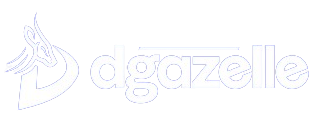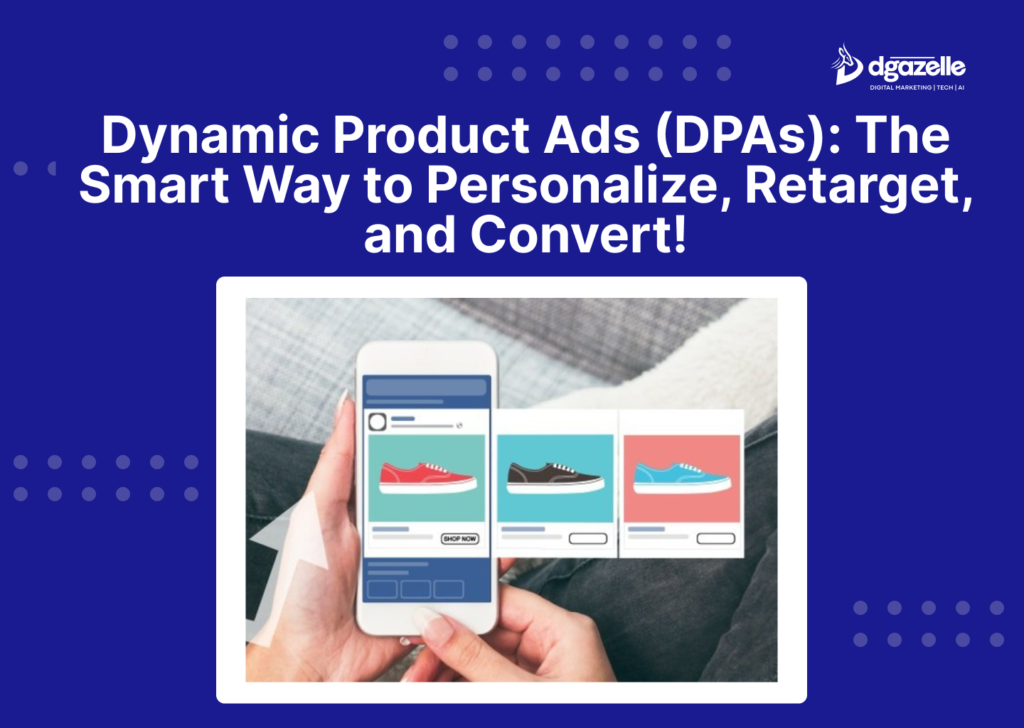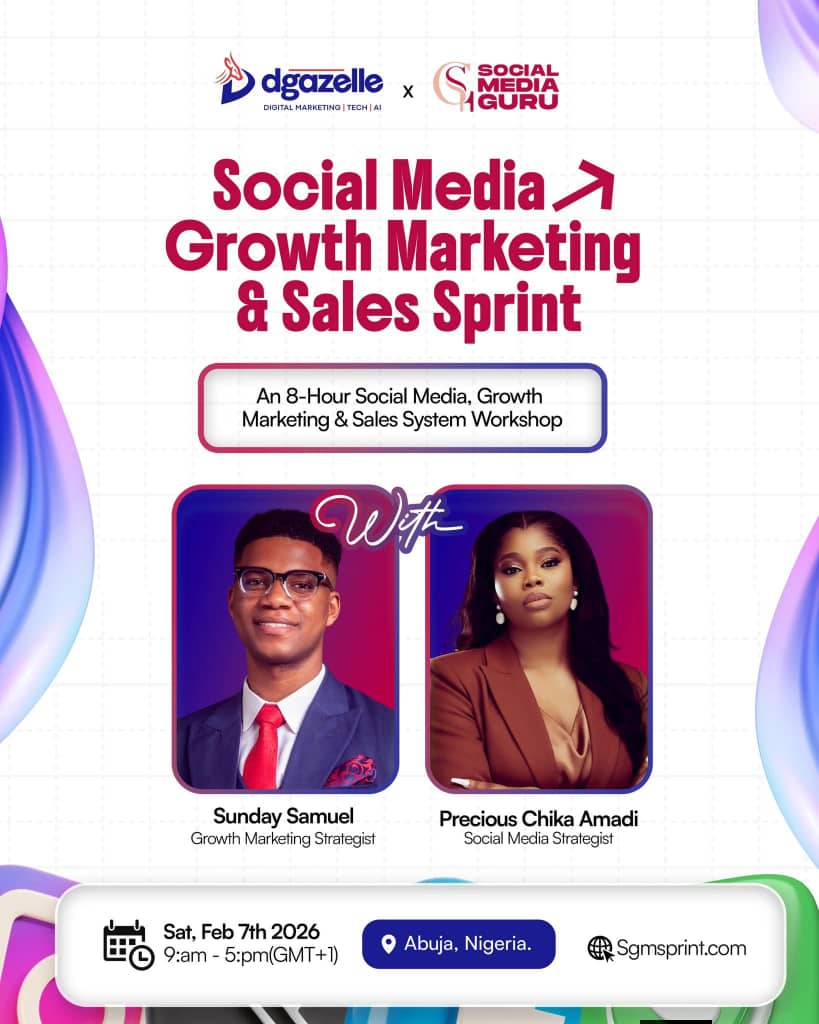Dynamic Product Ads (DPAs) revolutionize digital advertising by automatically displaying the most relevant products to potential customers based on their online behaviors and interests. Unlike traditional static ads that target broad audiences, DPAs use real-time data to create personalized shopping experiences, increasing engagement and conversions.
At the heart of DPAs is a powerful, data-driven system that pulls product information directly from a business’s catalog. These ads adjust dynamically to showcase items that users have viewed, added to their cart, or previously purchased. This means every ad is uniquely tailored to each shopper, making them more likely to take action.
For Nigerian businesses looking to maximize their advertising ROI, DPAs offer an efficient way to target the right customers at the right time. At Dgazelle, we specialize in setting up and optimizing DPAs to help businesses boost sales and reduce wasted ad spend. Let’s help you turn casual browsers into loyal buyers with high-performing, automated product ads.
So What Are Dynamic Product Ads on Facebook?
If you’ve ever browsed a product online, left without purchasing, and later saw that same product in your Facebook feed, you’ve encountered a Dynamic Product Ad (DPA) in action. Unlike static ads that show the same content to everyone, DPAs automatically adjust based on user behavior, making them one of the most powerful tools in digital advertising.
Also known as Meta Dynamic Ads, Catalog Ads, or Meta DPAs, these ads work by pulling product data from your catalog and displaying the most relevant items to potential customers based on their browsing history. Think of it as a smart billboard that changes for every viewer, showing them exactly what they were interested in—whether it’s fashion, electronics, or household items.
Now, imagine this: A customer visits your website, checks out a pair of sneakers, but leaves without buying. Frustrating, right? With an average cart abandonment rate of nearly 70%, businesses lose millions in potential revenue. But what if you could bring that customer back?
With Facebook DPAs, you can! These ads automatically re-engage lost shoppers, showing them the exact sneakers they viewed—plus similar styles they might love—directly in their Facebook or Instagram feed. The results? Higher conversions, lower ad costs, and increased revenue.
You don’t have to figure it out alone. At Dgazelle, we specialize in setting up and optimizing Facebook Dynamic Ads to help businesses in Nigeria maximize their ad spend and drive real sales.
Dynamic Vs. Traditional Ads: Which One Drives More Sales?
When it comes to digital advertising, businesses often have two choices:
Traditional Ads – offering control but requiring manual effort.
Dynamic Product Ads (DPAs) – automated, data-driven, and tailored to individual customers.
So, which one is better for your business? Let’s break it down.
Traditional Ad Campaigns: Manual Control, Limited Flexibility
Traditional ads, such as banner ads, native ads, and pop-ups, are static—meaning they stay the same for everyone. In these campaigns, marketers must:
- Manually select the target audience
- Create and test different versions of ads
- Set budgets and bidding strategies
- Show the same message to a broad audience
While this method gives brands full control over messaging and targeting, it lacks real-time personalization. Traditional ads are great for brand awareness campaigns or non-product promotions, but they struggle to convert customers who need a personalized shopping experience.
Dynamic Product Ads (DPAs): Personalized and Automated for Maximum Conversions
Unlike static ads, DPAs use Facebook’s AI and automation to display highly relevant product recommendations based on user behavior. Instead of creating multiple ads manually, businesses upload a product catalog, and Facebook automatically serves the right products to the right people. How does it work?
- Someone views a product on your website but doesn’t buy.
- Later, that same product appears in their Facebook or Instagram feed, reminding them to complete the purchase.
- DPAs even showcase similar items, increasing the chances of conversion.
With the introduction of Meta’s Advantage+ Ads, DPAs have become even more powerful, efficient, and cost-effective—perfect for Nigerian eCommerce businesses looking to scale their sales effortlessly.
Which One Should You Choose?
Use Traditional Ads if you need full control and direct brand messaging. Or use Dynamic Product Ads if you want higher conversions, better ROI, and automated retargeting.
Want to start using DPAs to maximize your sales? Dgazelle can help you set up, optimize, and scale your Facebook Dynamic Ads for the best results. Let’s get started!
How Do Facebook Dynamic Product Ads (DPAs) Work?
Ever wondered how Facebook seems to know exactly what you’re looking for? You casually check out a used MacBook Air on a website, and suddenly, your Facebook and Instagram feeds are flooded with similar offers. Coincidence? Not at all! This is the power of Facebook’s Dynamic Product Ads (DPAs) at work.
The Secret Behind Facebook’s Ad Targeting
DPAs use Facebook’s AI and tracking tools to deliver highly personalized ads based on user behavior. This means every action a potential buyer takes—searching, clicking, or adding items to a cart—triggers a tailored ad experience. Here’s how it all comes together:
Step 1. Upload Your Product Catalog: Your business submits a product catalog to Facebook, containing key details like names, images, prices, and descriptions.
Step 2. Facebook Pixel & SDK Track User Behavior: Facebook’s Pixel (for web) and SDK (for apps) track user activity, recording interactions such as:
- What products they viewed
- Items added to cart but not purchased
- Pages visited and time spent
Step 3. AI-Driven Ad Matching: Facebook’s AI cross-references this user data with your product catalog, ensuring only relevant products are shown to the right people at the right time.
Step 4. Personalized Ad Display: Using pre-built ad templates, Facebook dynamically inserts images, product names, and pricing, making the ads look as though they were handpicked for each user.
Step 5. Ad Placement & Continuous Optimization: DPAs appear across Facebook, Instagram, Messenger, and Audience Network, automatically testing different variations to find the best-performing ads. Over time, Facebook refines the campaign for maximum conversions.
Conclusion: Why Facebook DPAs Are a Game-Changer
Facebook Dynamic Product Ads (DPAs) aren’t just another marketing tool—they’re a powerful strategy to personalize engagement, boost conversions, and maximize ROI.
For eCommerce businesses, DPAs provide a competitive edge by delivering the right product to the right person at the right time—automatically!
Want to take your sales to the next level? Let Dgazelle help you set up high-converting DPAs tailored to your business goals. Let’s get started today!





